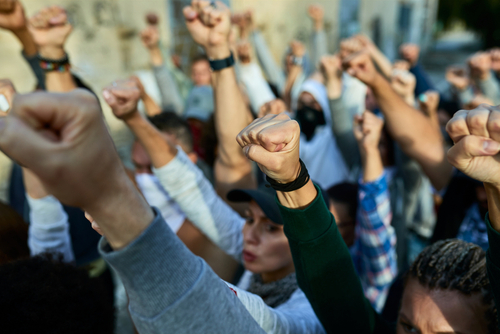In theory, labor unions and employers have the potential to engage in effective partnerships. After all, both have something the other needs: Employers need labor to staff their operations, and labor unions need jobs for their members.
Of course, in the real world, organized labor and employers are often seen in antagonistic relationships more frequently than cooperative ones. That doesn’t mean such relationships are inherently doomed. Rather, it tends to be the dramatic strikes and labor disputes that make headlines, and indeed a couple of recent news stories have highlighted the potential tension.
Starbucks Congressional Hearing
While coffee shop powerhouse Starbucks has adeptly fended off many previous attempts at unionization, it’s not just the labor unions that are applying pressure.
“Former Starbucks CEO Howard Schultz on Wednesday faced a volley of tough questions from Sen. Bernie Sanders about the coffee chain’s alleged union busting,” writes Amelia Lucas in an article for CNBC. “Schultz stepped down from his post on March 20, handing the reins over to Laxman Narasimhan, who spent the prior six months learning about the company. However, Schultz remains on Starbucks’ board and is its fifth-largest shareholder, with a 1.9% stake in the company he turned into a global juggernaut. Sanders, a pro-union independent representing Vermont, has been putting pressure on Starbucks for more than a year to recognize the union and negotiate contracts with unionized cafes. He chairs the Senate’s Health, Education, Labor and Pensions Committee, which conducted the panel.”
United Airlines Strike
With just a handful of major airlines operating in the United States, any disruption to one carrier can create huge disruptions in the American aviation industry. That’s certainly no secret to this industry’s labor unions, which understand the leverage they have at their disposal through the threat of strikes or slowdowns.
Recently, one major U.S. airline staved off potential labor disruptions through a tentative agreement with a major labor union. “United Airlines has reached tentative agreements with a union representing nearly 30,000 ground workers, the labor group said Wednesday,” writes Noah Sheidlower in an article for CNBC. “The International Association of Machinists and Aerospace Workers said the two-year tentative agreements cover ‘industry-best’ wage rates, as well as job protection and certain guards against outsourcing roles.
Specific terms haven’t been disclosed, but these labor talks have been ongoing as preliminary agreements have been rejected, Sheidlower says.
Unions have lost a tremendous amount of clout from their heyday in the mid-20th century. But organized labor can still be a major player in many industries, and as recent media reports illustrate, even big-name companies like Starbucks and United have to account for their impact.
Lin Grensing-Pophal is a Contributing Editor at HR Daily Advisor.

